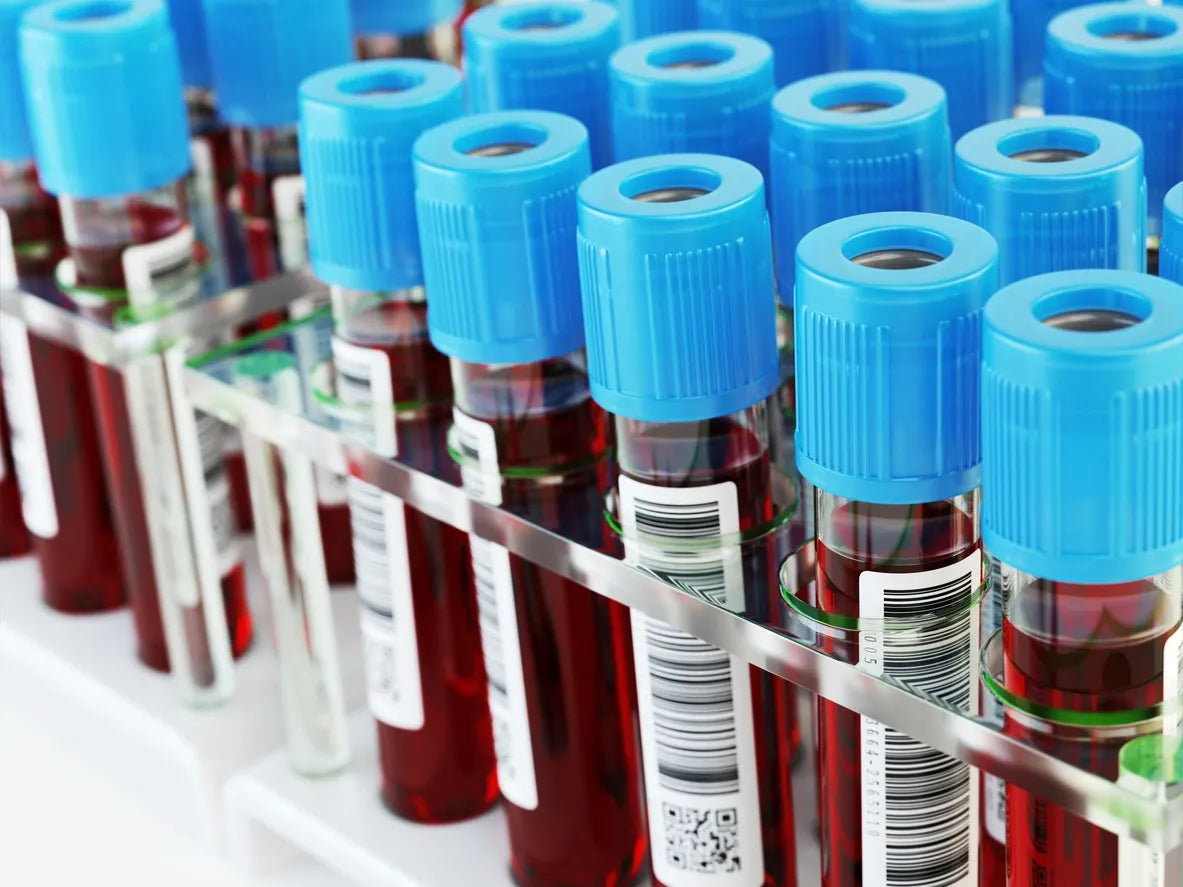
Understanding Endocrine and Metabolic Conditions
Learn about a wide range of hormonal, adrenal, thyroid, and metabolic conditions. Each article provides clear, concise information to help you better understand the causes, symptoms, and potential health impacts of these disorders.
Hyperprolactinemia
What is Hyperprolactinemia?
Hyperprolactinemia refers to an abnormally high level of prolactin, a hormone produced by the pituitary gland. Prolactin is primarily responsible for stimulating milk production in women after childbirth, but its production is regulated by various factors. When prolactin levels become excessively high, it can lead to a range of symptoms and health issues for both men and women. Hyperprolactinemia is often caused by a prolactinoma, a benign pituitary tumor, but there are several other potential causes for elevated prolactin levels.
Causes of Hyperprolactinemia
There are several causes of hyperprolactinemia, including:
- Prolactinoma: A benign tumor of the pituitary gland that secretes excessive amounts of prolactin, causing an increase in blood prolactin levels.
- Medications: Certain medications, particularly dopamine antagonists (e.g., antipsychotics, some antidepressants), anti-nausea medications, and antihypertensives, can lead to increased prolactin production.
- Hypothyroidism: An underactive thyroid (hypothyroidism) can cause elevated prolactin levels, as low thyroid hormone stimulates prolactin release.
- Pregnancy: Pregnancy naturally increases prolactin levels to prepare for breastfeeding, but in non-pregnant individuals, this should not be the case.
- Chest Wall Trauma: Any injury or surgery involving the chest wall, including the breast, can stimulate prolactin secretion.
- Stress: Physical or emotional stress can also lead to temporary increases in prolactin levels.
- Other Pituitary Disorders: Disorders affecting the pituitary gland, such as pituitary tumors (not necessarily prolactinomas), can result in elevated prolactin.
Symptoms of Hyperprolactinemia
The symptoms of hyperprolactinemia vary depending on the degree of elevation of prolactin and the underlying cause. Common symptoms include:
- Irregular Menstrual Cycles: Women may experience irregular periods or even complete absence of menstruation (amenorrhea).
- Galactorrhea: Spontaneous milk production unrelated to pregnancy or breastfeeding is one of the hallmark signs of hyperprolactinemia. It can occur in both men and women.
- Infertility: Elevated prolactin can interfere with ovulation, leading to difficulty getting pregnant.
- Decreased Libido: Both men and women may experience a reduced interest in sex due to the hormonal imbalance.
- Erectile Dysfunction: Men with hyperprolactinemia may experience difficulties with erections and a reduction in testosterone levels.
- Osteoporosis: Over time, untreated hyperprolactinemia can lead to a decrease in bone density, increasing the risk of osteoporosis.
- Headaches: In some cases, large prolactinomas can put pressure on surrounding brain structures, leading to headaches or visual disturbances.
- Visual Impairments: If a prolactinoma is large enough, it can compress the optic nerve, leading to vision problems or loss of peripheral vision.
Diagnosis of Hyperprolactinemia
The diagnosis of hyperprolactinemia generally involves a combination of laboratory tests and imaging studies:
- Blood Tests: A serum prolactin test measures the level of prolactin in the blood. Elevated prolactin levels, particularly if they are significantly higher than normal, suggest hyperprolactinemia.
- Thyroid Function Tests: Since hypothyroidism can cause elevated prolactin levels, thyroid function tests are typically performed to rule out this condition.
- Pregnancy Test: If a woman has elevated prolactin, a pregnancy test is done to rule out pregnancy as the cause of elevated prolactin levels.
- MRI or CT Scan: Imaging studies, particularly MRI, are used to assess the pituitary gland and identify any tumors, such as prolactinomas.
- Other Hormonal Tests: Additional tests, such as measuring estrogen, testosterone, and cortisol levels, may help assess the full extent of hormonal imbalances caused by hyperprolactinemia.
Treatment of Hyperprolactinemia
Treatment for hyperprolactinemia is based on the underlying cause of the elevated prolactin levels:
- Dopamine Agonists: The primary treatment for prolactinomas is the use of medications that stimulate dopamine receptors, such as bromocriptine and cabergoline. These drugs reduce prolactin production and often shrink the size of prolactinomas. These medications are effective in the majority of cases.
- Surgery: If a prolactinoma is large, causing significant symptoms, or resistant to medication, surgery may be required. The tumor is typically removed through a transsphenoidal approach, where the surgeon accesses the pituitary gland via the nasal passages.
- Radiation Therapy: If surgery and medications are not effective, radiation therapy may be used to shrink the tumor, although this is less commonly needed.
- Medication Adjustment: For hyperprolactinemia caused by medications, adjusting or discontinuing the medication (under the guidance of a healthcare provider) may be sufficient to normalize prolactin levels.
Managing Hyperprolactinemia at Health Force One
At Health Force One, we offer comprehensive care for individuals with hyperprolactinemia, including:
- Accurate Diagnosis: Through a combination of blood tests, imaging studies (MRI), and thorough clinical evaluation, we identify the cause of elevated prolactin levels and create a personalized treatment plan.
- Medication Management: We provide expert management of dopamine agonist medications, ensuring that prolactin levels are effectively reduced and that patients experience minimal side effects.
- Surgical Referrals: If a prolactinoma is identified and does not respond to medication, we refer patients to experienced neurosurgeons for the removal of the tumor.
- Ongoing Monitoring: Regular follow-ups, including lab tests and imaging studies, are essential to ensure that prolactin levels remain within normal ranges and that any tumors are monitored for growth.
- Fertility Support: For women facing infertility due to hyperprolactinemia, we offer fertility consultations and treatments to improve the chances of conception.
Conclusion
Hyperprolactinemia is a treatable condition, and early intervention can help alleviate symptoms and prevent long-term complications. By effectively managing prolactin levels and addressing any underlying causes, most individuals can achieve normal hormone function and regain their quality of life. At Health Force One, we provide comprehensive care and ongoing support for patients with hyperprolactinemia, ensuring the best outcomes for their health and well-being.
Let me know if you need further adjustments or have additional questions!


